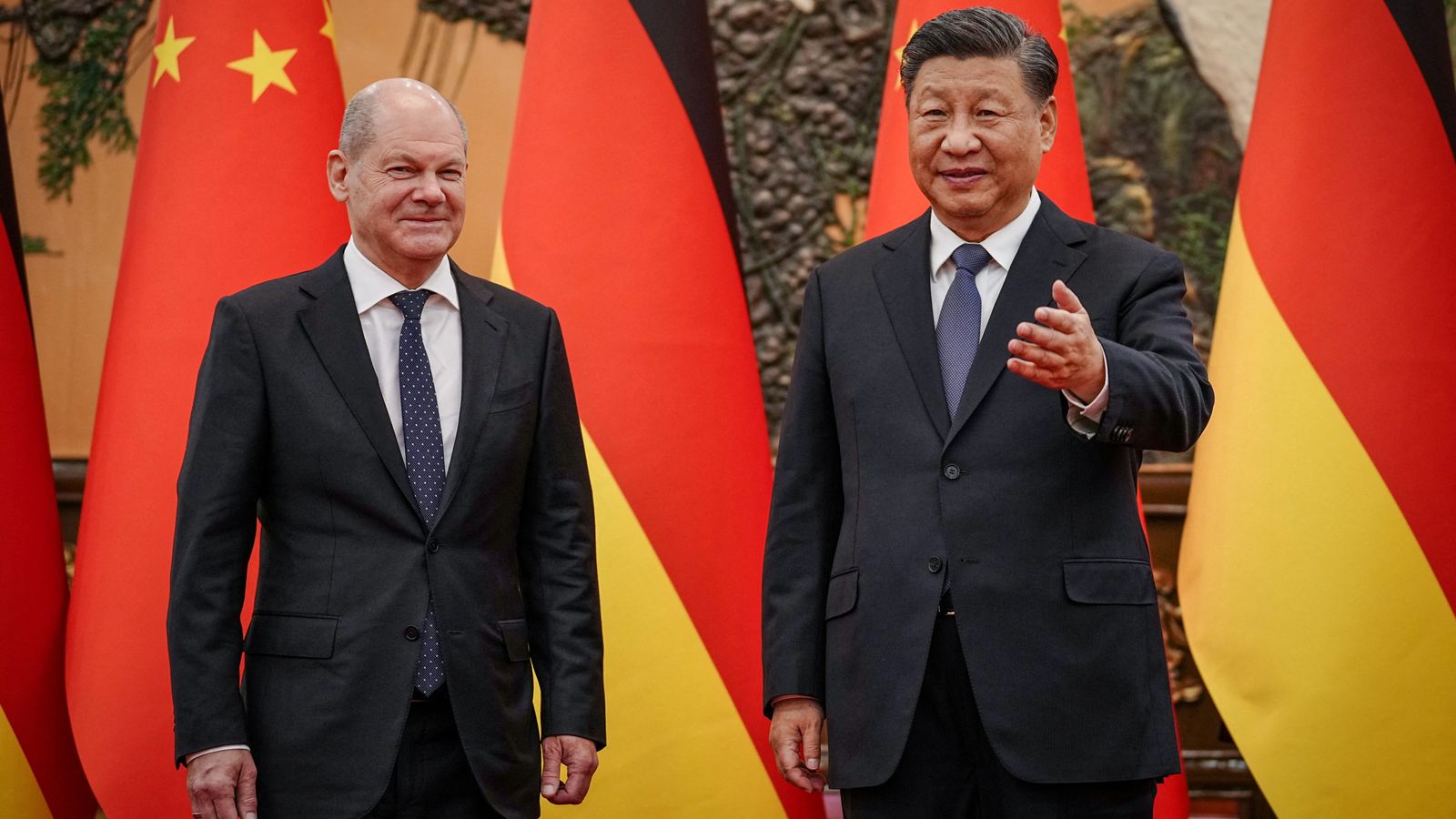The German chancellor no doubt had to tread a very careful line today on his visit to Beijing, but the message and symbolism felt abundantly clear – an isolated China isn’t good for anyone.
He could hardly have picked a more beautiful day to come, the skies were clear blue, the sun shone and German flags flew alongside Chinese ones across Tiananmen Square.
But make no mistake – this trip was fraught with difficulty both logistically and politically.
China’s continued adherence to a zero-COVID agenda means the German delegation has been kept in a strict bubble, they are not staying the night and will have no contact with Chinese people beyond what’s absolutely necessary.
Please use Chrome browser for a more accessible video player
Diplomatically things are complex.
Olaf Scholz is the first G7 leader to make this trip since the pandemic, a time where China has become increasingly isolated.
It also comes at a time of heightened tensions with the West and less than a month after Xi Jinping was affectively made leader for life here, consolidating his increasingly autocratic control.
Shanghai Disney Resort visitors told to stay at home after single COVID case prompts lockdown of theme park
US set to station nuclear capable B-52 bombers in northern Australia
UK sent RAF pilots to teach Chinese counterparts and allowed students to attend British military colleges
That context makes the stakes higher and the symbolism more stark than it would have been pre-pandemic.
Top of the agenda is no doubt the war in Ukraine.
China had thus far retained a relatively ambiguous stance. Despite Xi’s apparent closeness with Vladimir Putin, China has stopped short of endorsing the war and hasn’t sold arms to the Russians.
Please use Chrome browser for a more accessible video player
The West needs that to remain the case and Xi is perhaps one of the few people in the world powerful enough to influence President Putin.
The war in Ukraine also sets the context for trade and economic negotiations.
The German and Chinese economies are intricately linked, China has been Berlin’s largest trading partner for the last seven years running. But it has learned the hard way with Russian gas the dangers of being too reliant on an unpredictable power.
A plethora of issues from China’s human rights record and sabre rattling over Taiwan mean that not everyone, including some of Scholz’s coalition partners in Germany, were supportive of this trip, but he had clearly made the judgement that China is simply too powerful to ignore.
And on that he may be right. China’s role in cross-border issues from climate change, food security and the pandemic is clearly vital.
China for its part is becoming increasingly assertive on the foreign stage and wants to be seen and treated as a central global player not just economically but politically too.
How to manage this amidst the challenges it casts is something all Western powers will need to grapple with.
Click to subscribe to the Sky News Daily wherever you get your podcasts







